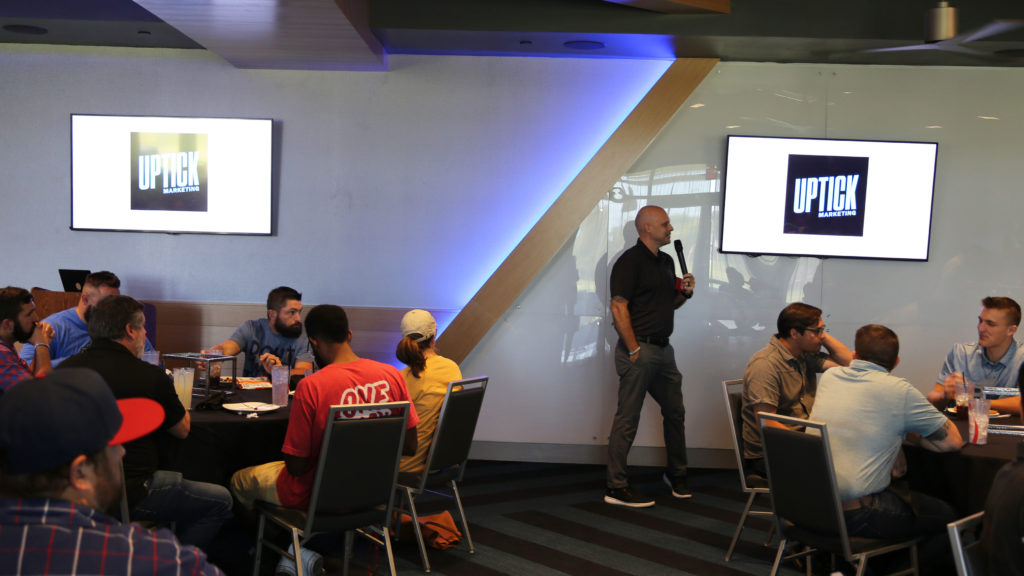Calvinism is not a recent phenomenon in Southern Baptist life but instead has deep roots in its history, Union University President David S. Dockery said Aug. 4 at a conference on the issue.
“There have been Calvinists in the convention since its inception,” Dockery said at the conference sponsored by the Kentucky Baptist Convention called “Calvinism: Concerned, Confused, or Curious.”
Dockery delivered two lectures, the first focusing on the history of Baptist theology and the second spotlighting the resurgence of Calvinism within Southern Baptist life.
“This conversation is difficult because there isn’t just one theological stream or tradition in Baptist life. There are several. There isn’t just ‘one’ leader, either,” he noted, referencing some denominations, such as Methodists (John Wesley) and Lutherans (Martin Luther), who can look back to a founder or major influencer.
Dockery located the beginning of Baptist life with the rise of English Separatism in England. As Baptist life developed in England in the 1600s, Baptists divided between “General Baptists,” with individuals like John Smyth as their leader, and “Particular Baptists.” The Particular Baptists represented a more Calvinistic understanding of salvation, while General Baptists held to, as the name suggests, a more “general” understanding of the atonement.
At the founding of the Southern Baptist Convention (SBC) in May 1845, it would have been difficult to find leaders who were not Calvinistic in their theology, Dockery said. He distinguished between the Calvinistic denominational leadership of the SBC and its less Calvinist laity. At that time, however, the question of Calvinism was not plaguing the newly formed denomination. Dockery drew attention to the Calvinistic leanings of the Abstract of Principles, a document written by James P. Boyce that would serve as a doctrinal weathervane for Southern Baptist Theological Seminary, which was founded in 1859 in Greenville, S.C., before it moved to Louisville, Ky. Boyce was president of Southern Seminary from 1859 to 1888.
“Writing theologians have influence,” Dockery explained, “and it was the denomination’s Calvinist theologians that wrote, such men as James P. Boyce and John Dagg.”
Dockery began his second address by asking the question, “Are Southern Baptists Calvinists?” He answered the question by comparing what “Calvinism” means according to different traditions. “To a Wesleyan,” Dockery said, “Southern Baptists are Calvinists because we believe in eternal security, which Wesleyans do not. But to Presbyterians, who hold to a plurality of elders and infant baptism, we are not Calvinists,” Dockery stated.
Dockery traced the trajectory of earlier 20th century Southern Baptist theology, which emphasized personal response, revelation and revivalism.
“Southern Baptist thought moved from a hermeneutic of divine sovereignty with Boyce, [John A] Broadus and [Basil] Manly,” Dockery said, “to one of personal revelation and experience with E.Y. Mullins.” Mullins was president of Southern Seminary from 1899 to 1928.
As Southern Baptists became more programmatic in the mid-20th century, Dockery said, “the SBC re-envisioned itself, largely ignoring the 19th century roots.”
Southern Baptist theologians like Herschel Hobbs began moving Southern Baptist theology “toward a modified understanding of predestination and foreknowledge. He [Hobbs] believed that God affirmed every free human choice in such a way that the choices are not predetermined.” The “modified Arminianism” of Hobbs and famed pastor Adrian Rogers, Dockery said, stands in stark contrast to the 19th century Calvinism.
Dockery was careful to note that it was not a rejection of Calvinism that gave rise to liberalism, but the rejection of biblical authority, inerrancy and the exclusivity of Christ.
With conservative theology laying the foundation for the convention in a post-Conservative Resurgence era, Dockery now sees various streams within the convention: fundamentalists, revivalists, orthodox evangelicals and Calvinists.
Dockery suggested that the contemporary resurgence in Calvinism is partially attributable to outside influences on seminarians and laity, such as theologians and pastors Carl Henry, J.I. Packer and John Piper. All of these spokesmen combine biblical inerrancy with a strong commitment to Calvinism.
Dockery made the case for a “big tent” SBC in which Calvinists and non-Calvinists can partner together for the cause of Christ. He also put the Calvinism controversy in larger perspective, suggesting that liberalism, neo-paganism, and postmodernism are bigger challenges for Southern Baptists to overcome than Calvinism.
“Calvinism is not the most important conversation Southern Baptists ought to be having. We have far more that we agree on than we disagree on,” Dockery said.
“By and large we don’t know our heritage, our history, our theological identity or the distinctives of the various traditions,” Dockery said.
He gave several axioms for Southern Baptists to use in dealing with the question of Calvinism in the convention:
- Do not compromise your own convictions.
- Remember that doctrinal matters do count.
- Seek togetherness for the right reasons.
- Pray for guidance and illumination from the Holy Spirit where we have theological disagreements.
- Be humble and not arrogant when dealing with controversies. Avoid caricatures.
Video and audio of the conference is available online at www.kybaptist.org/calvinism.
(BP)





Share with others: